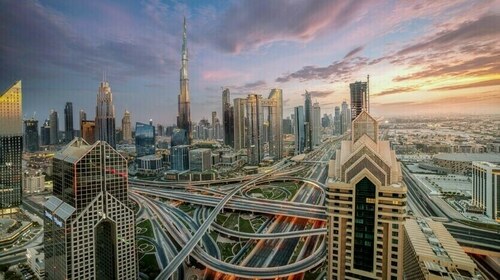Dubai Launches ‘One Freezone Passport’ to Boost Business
The Dubai Free Zones Council has recently declared the successful launch of the One Freezone Passport. This initiative enables businesses to operate across multiple free zones utilizing a single license.
In simpler terms, a company licensed in one free zone can leverage resources in other free zones throughout Dubai without needing extra licenses.
While the announcement omitted specific details regarding the included resources, they likely encompass office spaces, warehousing solutions, HR support, and perhaps even R&D or legal services.
Louis Vuitton Pioneers Dubai’s ‘One Freezone Passport’ Initiative
The Council has hailed the Passport as a “ground-breaking initiative designed to facilitate business operations across Dubai’s free zones.”
Notably, the global luxury brand Louis Vuitton has become the first company to utilize this initiative via the Dubai World Trade Centre Authority (DWTC), which manages the Dubai World Trade Centre Free Zone. The entire process for Louis Vuitton took only five days.
Louis Vuitton will keep its warehousing activities within the Jebel Ali Free Zone while simultaneously setting up its corporate offices at One Za’abeel, which is a part of the Dubai World Trade Centre Free Zone.
Dr. Juma Al Matrooshi, Assistant Secretary General of the Dubai Free Zones Council, stated that “by empowering businesses to expand seamlessly across our world-class free zones, we are strengthening Dubai’s standing as a leading investment destination.”
Impact on Businesses
What are the implications for businesses? As per the government, companies can broaden their operational presence through a streamlined and expedited procedure. The program may also foster collaboration across various sectors within Dubai.
Bas Kooijman, CEO of DHF Capital SA, an asset management company, noted that “The One Freezone Passport initiative fundamentally reshapes Dubai’s business environment by enabling companies to operate throughout all 30-plus free zones under a single license.”
He added, “This eliminates operational barriers for companies and offers significant advantages, drastically reducing administrative and legal expenses by removing duplicate licensing fees and accelerating expansion timelines from months to as little as five days.”
“Strategically, businesses can now employ effective ‘hub-and-spoke’ models, integrating the specialized benefits of diverse zones, such as JAFZA’s logistical strengths and DWTC’s commercial prestige, all under one corporate structure,” Kooijman elaborated.
“Regarding Dubai’s broader economy, the Passport serves as a strategic asset aligning with the Dubai Economic Agenda (D33). By establishing a cohesive, frictionless environment, it improves Dubai’s global competitiveness relative to hubs such as Singapore and London,” he stated.
He further explained that the initiative aims to attract higher-value foreign direct investment (FDI) by facilitating seamless management of complex multinational operations from the emirate.
“This positions Dubai at the forefront of the global value chain, promoting long-term economic advancement and solidifying its status as a premier international business destination.”
The underlying goal is to reinforce the emirate’s role as a global economic center while improving operational efficiency for businesses.
Abdalla Al Banna, Vice President of Free Zone Regulatory Operations at DWTC, highlighted that the program enhances Dubai’s appeal for global enterprises by enabling smooth operations across the city’s free zones, “contributing to Dubai’s vision of becoming the world’s leading destination for international investment and business setup.”
The DWTC Free Zone hosts global corporations, innovators, and entrepreneurs across more than 40 diverse sectors.
It stands as one of over 30 specialized free zones in Dubai, each tailored to support specific industries like technology, media, finance, healthcare, logistics, and manufacturing. These zones operate under their own regulatory systems and offer 100% foreign ownership, complete repatriation of profits, and exemptions from corporate taxes and import/export duties.
Prominent examples include the Dubai Multi Commodities Centre, recognized as the world’s largest free zone for commodities trading; Dubai Internet City, a hub for tech and digital innovation; and Dubai International Financial Centre (DIFC), a leading financial services jurisdiction within the region.
These free zones have played a crucial role in attracting international businesses and startups by providing simplified setup processes, advanced infrastructure, and strategic access to global markets.
Each zone boasts unique amenities and infrastructure. For instance, DIFC provides financial services frameworks, encompassing banking, fintech assistance, and legal arbitration services.
Dubai Design District (d3) and Dubai Media City serve as creative hubs for content creators, designers, and fashion labels, while Dubai Healthcare City features clinics, laboratories, and academic medical facilities.
The One Freezone Passport is one of many initiatives the government is putting in place to help companies in these zones.
For example, a free zone company could previously only operate within that specific zone and outside the UAE, but not within a non-free zone area in the UAE.
However, in March, new regulations were introduced allowing any company or institution licensed by a free zone authority to operate outside its free zone and within Dubai, provided it secures the required licenses and permits from the Dubai Department of Economy and Tourism.



Comments (0)
No comments yet. Be the first to comment!
Leave a Comment